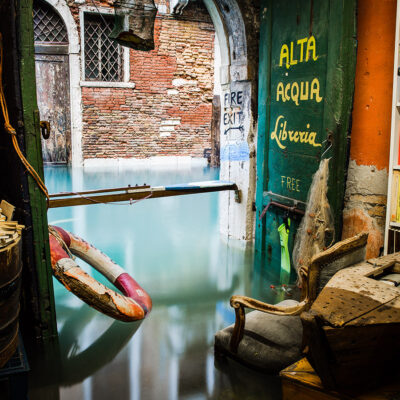Repentance by Eloísa Díaz
Thank you to the individual who placed Repentance on display in the New Books section of my local library! I’m so glad I spied it and gave it a try. A debut novel written by Eloísa Díaz and published in 2021 by Polis Books, it is a unique combination of genres including historical, psychological, political, mystery and thriller. Rarely does a writer create a story in which place, character, plot, and theme are each equally captivating! Eloísa Díaz has done just this, and the result is a riveting read!
Eloísa Díaz was born in Spain to Argentinian immigrants and is a writer and lawyer. She studied Law at Pantheon-Sorbonne University in Paris, then completed her MFA in Creative Writing from Columbia University. In a recent interview, she stated that as a child, she travelled to Argentina to see her relatives, but has not visited in the last decade. Most of her research for this story was done in New York, Madrid, Lisbon and Málaga, and involved history books, policy and economics papers, and fiction about the topics and conversations with first-hand witnesses. She was thankful for the 5000 or 6000 miles that separated her from Buenos Aires. She explained that the distance gave her permission to write a much bolder crime novel.
Dual timelines twenty years apart shine a spotlight on the theme of Repentance that the past lives on “within those who are still around” and that it bleeds “dangerously into the present.” [p. 21] The author alternates between events taking place in Buenos Aires during 2001 and flashbacks to 1981, a terrifying period of Argentina’s history when military, security forces and right-wing death squads ruled the country.
In 1981, our protagonist Joaquin Alzada is worried about his activist brother Joaco, a professor who is not afraid of criticizing the military dictatorship. He has a right to worry as anyone suspected of being a political dissident, or supporter of leftist, socialist or social justice causes joins the ranks of the ‘disappeared’ and experiences incarceration and torture until death. Joaquin, a police inspector whose goal is survival through compromise, believes in keeping his head down and his mouth shut. His brother is less cautious, making his political opinions known and ignoring Joaquin’s warnings.
In 2001 a world-weary Alzada is still an Inspector in the Buenos Aires police force, solving crimes as he awaits retirement and trying to make sense of his painful choices in the past. He’s eligible to stop working, but there is not enough money in the pension fund to provide for him. It’s not just Alzada who is making sacrifices as we learn in narrative slices like the following:
Since President de la Rúa had decided to confidently steer the economy into the abyss, Argentinians had suffered his particular brand of incompetence in agonizing stages: first they’d been barred access to their savings accounts; then they’d been forced to watch as the frenetic inflation made life several times more expensive overnight; now they lived with ever-increasing restrictions on their checking accounts — in a country where people dealt almost exclusively in cash. And people had done so stoically. Sure, there had been lootings in grocery stores and petrol stations. Isolated incidents peppered conservatively throughout the poorer provinces, far from the capital. When they had seen the images on the evening news, Paula had declared: ‘God presses but doesn’t suffocate.’ [pp. 6-7]
We learn that Alzada “lived through four successful coup d’états and a half dozen failed ones” by the time he turned thirty. From the time he graduated from the police academy, he was “caught between two belligerent sides. The names had evolved, but the essence had remained unchanged: on the one hand, always, the military government with its hard-line approach to keeping order. For them, any police officer who refused to participate in their dirty work was judged on a scale from ‘weak’ to ‘enemy of the state.’ In the opposite trench sat different iterations of the same underground guerilla: to them, the police was on the oppressive regime’s side, and hence deserved to be the target of their endless attacks” [p. 131].
Mysteries do inhabit this novel. For instance, the story begins in 2001 with Joaquin and his new deputy, Orestes Estrático, meeting at the morgue to try to identify a body that was found in a nearby dumpster. Very soon after that, they meet with the relatives of a wealthy woman who has gone missing. But I think, first and foremost, its classification should be historical literary fiction with Buenos Aires as its central character. From the very beginning we know we are in the hands of an author whose prose is superb. It is the manner in which Eloísa Díaz blends Buenos Aires history into a vivid and unique narrative that inspired my obsession with this story. The following is just one example that supports this argument.
Alzada leaned forward against the wheel. This time of summer, the sky should have shown itself irreverently lapis-lazuli blue; instead, a dust-laden haze coated Buenos Aires in a clammy mood and colored the atmosphere a homogenous, dull grey. Definitely not your normal climate. A polished, slick metal lid on a pressure cooker. On the horizon, against the turbulent waters of the Rio de la Plate — once described by conquistadors as ‘the river the color of lions’ — all green lights. Alzada shifted into third.” [p. 4]
Repentance depicts the suppression, brutality, corruption, and tenuousness of life during two periods in Argentinian history. Even if you are familiar with the totalitarian regimes of Argentina, this novel is definitely worth a read because of its detail-rich prose and fully developed characters. Eloísa Díaz is an amazingly assured new voice in crime fiction!
Crime fiction writers recommended by Eloísa Díaz include Andrea Camilleri, Claudia Piñeiro, Leonardo Padura, and Petros Markaris.
















